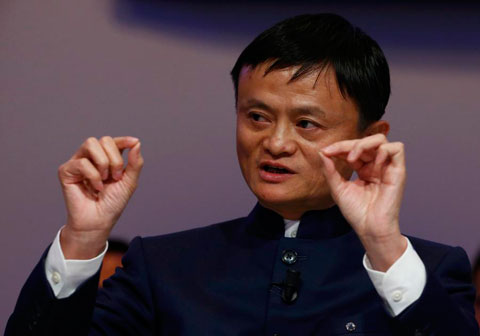Officials vow to plug tax loopholes
By ZHENG YANGPENG (China Daily) Updated: 2015-02-04 06:17Steps aim to upgrade system and raise level of global cooperation
Tax authorities in China are contemplating more measures to plug existing loopholes, along with steps to bring the nation's taxation system on par with other international peers, a top tax official said on Tuesday.
Zhang Zhiyong, deputy director of the State Administration of Taxation, said during a meeting of tax officials that the administration is taking steps to "upgrade" the current taxation system, a multi-faceted project that includes greater international cooperation, modernization of the domestic taxation laws and fighting tax avoidance.
Top government officials and those from taxation bureaus from all provinces and major cities participated in the meeting, underscoring the importance of the issue.
Liao Tizhong, director of the international taxation department of the SAT, said one of the key tasks is to bring the current taxation laws in line with international standards — which means to complete the amendment of the current laws, especially the Tax Collection and Management Law and Individual Income Law.
The amendment will absorb the latest international principles, especially an action plan being made under the G20 framework known as "base erosion and profit shifting", Liao said.
The G20 started work on BEPS in 2013 and is set to complete it by the end of this year. China is an active participant in the deliberations and has made several important inputs.
China will benefit by participating in the plan, Liao said. The main objective of the BEPS is to return tax to where value is created. China, an important manufacturing power, is playing an important role in the global value chain.
The "upgrade" work also includes signing more bilateral and multilateral taxation agreements to better monitor cross-border tax-related information, fight tax avoidance and avoid repeated taxation.
Liao said the administration aims to complete the work by 2016.
The conference was held two days after an elaboration on China's existing General Anti-Avoidance Rules framework came into effect, underscoring the issue's rising importance in the government work agenda.
Under the new elaboration, for example, a company that invests in China through entities in other regions or countries to take advantage of tax benefits that are not available from the company's home country could find itself on the wrong side of Beijing's tax authorities if it cannot prove it has substantial business operations or employees on the ground.
"SAT's recent moves suggest there will be more documents, more laws and more tax avoidance cases coming out in the near future. Multinationals, especially small foreign companies, should pay extremely high attention to their regulation compliance as failure to do so would lead to huge losses," an expert in the field who declined to be identified said.
However, the SAT is acutely aware of the challenges, including a yawning shortage of specialists in cracking down international tax dodgers and local governments' lack of interest.
China recovered 7.88 billion yuan ($1.26 billion) from tax avoidance investigations last year, an increase of 114-fold over six years ago. But even that number represented less than 0.1 percent of the nation's total tax revenue.
- China to improve cooperation along Belt and Road
- China eyes sustainable, strong agriculture
- Music industry fights online piracy, calls for paid services
- Growth to slow for China's smart devices: IDC forecasts
- Free patents to shake up fuel cell car sector
- China, Niger vowing deepened cooperation
- China capital account deficit widens in Q4
- Report reveals auto world's innovation trends
















